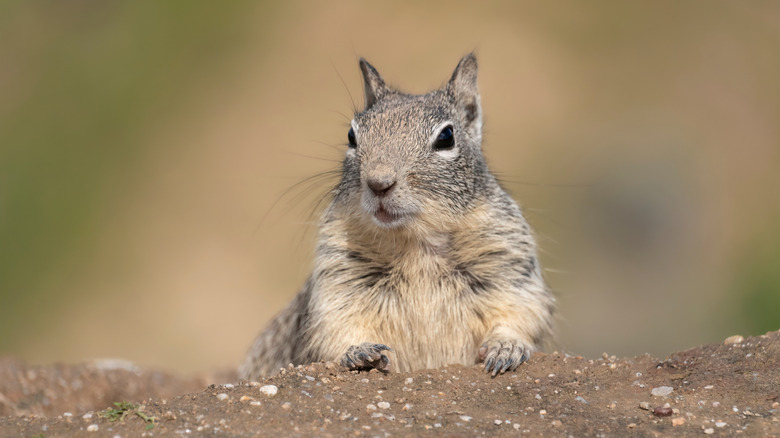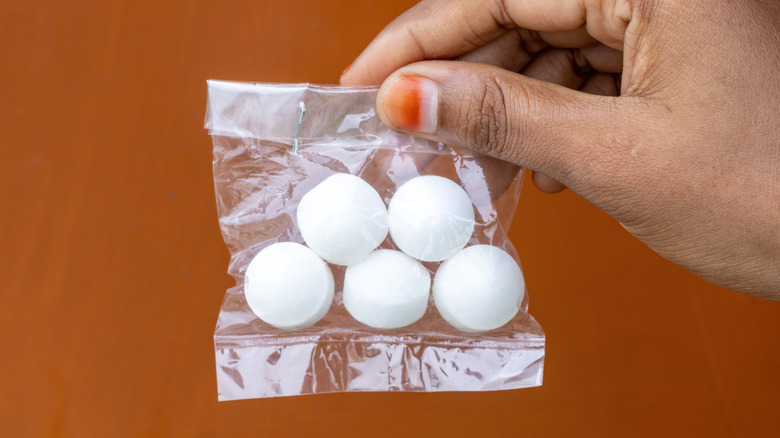The Often Recommended Remedy For Deterring Squirrels You Should Avoid
Squirrels are commonplace in rural areas, urban spaces, and everywhere in between. While some people love these furry rodents and intentionally lure them into their yards, others dislike the damage they can cause and want to deter them. If you fall into the second camp, though, you might also be concerned about how to humanely prevent them from hanging out on your property. As you explore the different ways to get rid of squirrels to come up with a comprehensive management plan, you may come across the use of mothballs as one option. But the dangers of this method far outweigh any possible squirrel-deterring effects.
Mothballs are pesticides that were historically used to protect textiles from moths by placing them in tightly sealed containers together. They are made with either paradichlorobenzene or naphthalene, which are two different types of insecticides. Some people have since tried to use mothballs off-label and out in the open in an attempt to ward off other types of pests like squirrels. It's thought that squirrels might avoid areas that have mothballs due to the toxic scent these products emit. As such, mothballs have sometimes been recommended for temporary use in unoccupied spaces, such as attics. However, it's still possible for fumes to escape in your home, so this practice is not recommended. You should also never place mothballs around your home or yard due to exposure risks to humans, pets, and wildlife.
Why mothballs are dangerous and what to do instead
Mothballs could potentially be off-putting to squirrels, but the effects are only temporary at best. Even if the product were 100% effective, the subsequent health risks to humans and pets do not make this technique worthwhile. Children and pets may be poisoned if they mistakenly ingest mothballs, and the fumes are toxic to anyone who breathes them in. As such, anyone who accidentally eats a mothball should seek emergency medical attention. In the short term, inhaled mothball toxins can cause problems such as nausea, headaches, coughing, and eye irritation. Long-term exposure can lead to damage to your kidneys and liver, or even a blood disorder called hemolytic anemia.
For safety reasons, it is better to skip the mothball technique for squirrel management and find other ways to deter these rodents. Rather than using chemicals, most experts suggest using exclusion methods instead. Depending on where you are trying to prevent squirrels, this can involve adding baffles to trees, installing mesh around your vegetable garden, and making repairs around your home to discourage entry and possible nesting. You may even be able to use repurposed items to keep squirrels out of bird feeders in your yard or garden. If you continue to have squirrel problems despite taking these steps, that's a sign it's time to call the pros.

